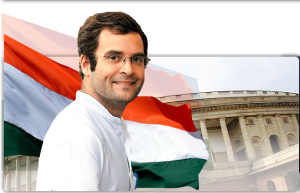SRINAGAR, July 27: Senior army commanders based in the state had agreed to partial withdrawal of the controversial Armed Forces Special Powers Act (AFSPA) at least from certain areas nearly two years ago, but was outrightly opposed by headquarters in Delhi, documentary evidence has revealed.
Tens of thousands have died in Kashmir due to violence involving militants and security forces in the last twenty years.
Inspired by a decline in militancy-related violence, Chief Minister Omar Abdullah is making efforts for AFSPA’s revocation and the issue is likely to be discussed on Saturday when defence minister AK Antony is scheduled to visit Kashmir along with the Army chief, General Bikram Singh.
According to minutes of crucial Unified Command meetings, the GoC, Northern Command, had agreed to partial lifting of the Act which gives sweeping powers to the army in conflict-ridden Kashmir, a national daily has reported.
“Certain areas can be recommended for withdrawal of AFSPA but not in sensitive areas where forces have to be kept. Before taking any decision, the army should be taken into confidence,’’ the Hindustan Times quoted the GoC as saying from the minutes.
At the same meeting, the GoC, 16 Corps, is quoted as saying, “Whenever a decision is taken, to be kept in mind that protection is provided to the army.’’
‘Failed Efforts’
Abdullah has been lobbying for partial withdrawal from relatively peaceful areas and while he found support with home minister P Chidambaram, the idea met with stiff resistance from the recently retired army chief, Gen VK Singh.
Asked about the Unified Command meeting, Abdullah said, “I’ve never made mention of the minutes but their authenticity cannot be denied. We weren’t able to narrow down our differences with the chief in Delhi.”
“I met Gen VK Singh and he offered to hold discussions in Delhi. We kept pushing for dates with Army HQ, but were never given time.”
The army commanders agreed to a withdrawal from non-sensitive areas but the decision, it appears, was overturned in Delhi, even though all inputs and intelligence available in the chief’s office came from the state.
In another Unified Command meeting, held in August 2011, the Intelligence Bureau additional director, in fact, said that “recent successful anti-militancy operations have neutralised the Lashkar-e-Taiba to a large extent and there has been effective control on infiltration.”
At the same meeting, the GoC of the Srinagar-based 15 Corps, while giving details of some recent infiltration attempts, “praised the efforts of the J&K Police and central paramilitary forces for their outstanding performance in anti-militancy operations”.
‘Personal Problems’
General VK Singh, who stayed opposed to partial revocation of the controversial law, maintained, till his retirement, that AFSPA was a functional requirement and in one interview also said that the “people of Kashmir want the army to stay’.
Sources in the ministry of defence point to a personal problem between Singh and Abdullah but when asked, the chief minister said, “I do not want to get into a war of words. I will continue to push for partial withdrawal. The issue is not closed.’’
The local commanders, who initially okayed the withdrawal, then changed their stance and in another meeting of the unified headquarter, the GoC 15 Corps, while discussing AFSPA, put up a slide in his presentation that said — Who are the ones demanding withdrawal? The answers given in the slide were: (a) Pakistan, (b) ISI agents, (c) Terrorists.
Abdullah, who was also present at the meeting, asked which category he was in.











